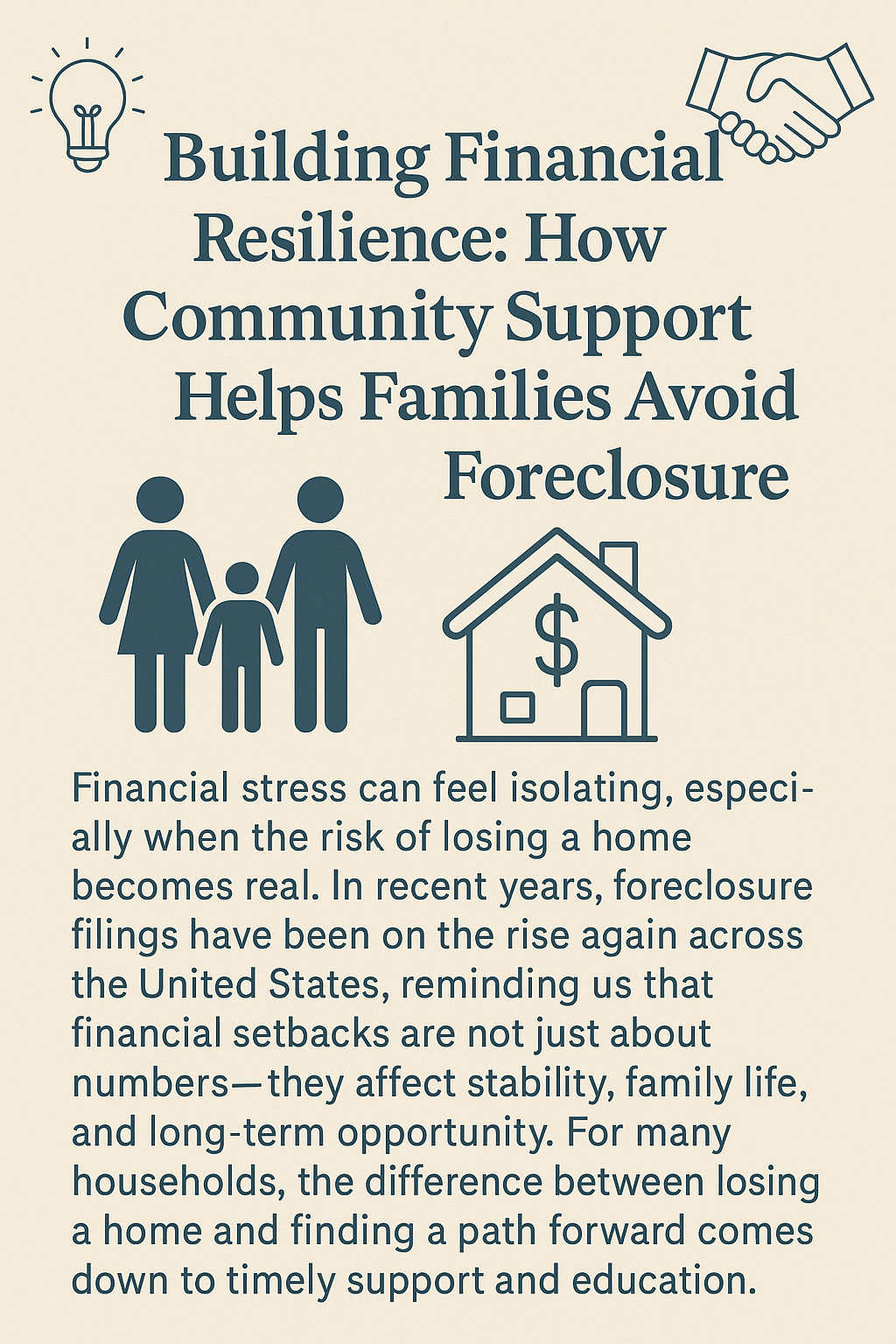Financial stress can feel isolating, especially when the risk of losing a home becomes real. In recent years, foreclosure filings have been on the rise again across the United States, reminding us that financial setbacks are not just about numbers—they affect stability, family life, and long-term opportunity. For many households, the difference between losing a home and finding a path forward comes down to timely support and education.
The Hidden Weight of Foreclosure
Foreclosure is not only a legal process; it’s an emotional one. Families facing it often feel overwhelmed by unfamiliar terms, confusing paperwork, and deadlines that come faster than expected. On top of that, there’s the stigma that makes many hesitate to ask for help until it’s too late. The longer homeowners wait, the fewer options they have.
Why Early Action Matters
Housing experts emphasize that intervention early in the process is crucial. Families who take action quickly can explore options like loan modifications, hardship programs, or structured repayment plans. These solutions don’t erase financial difficulties, but they provide breathing room and prevent long-term damage. The reality is that foreclosure prevention is most effective when homeowners know where to turn for clear guidance.
The Power of Education and Community
One of the most encouraging trends is the growth of community-focused initiatives that combine professional counseling with nonprofit partnerships. Programs like these provide one-on-one support to families, helping them understand what foreclosure means, how the process works, and what alternatives are available.
By partnering with local organizations, these initiatives do more than deliver financial advice. They connect families to a broader safety net—nonprofits, housing agencies, and community groups that can offer resources ranging from temporary relief funds to legal guidance. This collaborative model doesn’t just help families in crisis; it strengthens neighborhoods by preventing the ripple effects of abandoned properties and declining property values.
Lessons for Career and Finance Growth
The principles behind foreclosure prevention apply to personal and professional finance more broadly. Just like homeowners benefit from early action, individuals can protect their financial stability by planning ahead in their careers and investments.
- Seek information early: Waiting until a problem becomes unmanageable reduces your options. Whether in career decisions or money management, the earlier you learn, the better positioned you are.
- Build a network of support: Financial resilience is not just about income; it’s about having advisors, mentors, and community resources you can turn to.
- Focus on long-term stability: Quick fixes might provide relief, but long-term stability comes from steady planning, budgeting, and informed decision-making.
Moving Forward with Confidence
Foreclosure will always be a difficult experience, but initiatives that blend counseling, education, and community outreach show that solutions exist. For families at risk, the message is simple: you don’t have to go through it alone, and the earlier you seek help, the stronger your options will be.
In the broader conversation about careers and finance, this lesson is just as valuable. By taking proactive steps, seeking guidance, and building networks of support, individuals and families can navigate challenges, preserve stability, and create opportunities for a stronger financial future.
Contact/Attribution:
For guidance on foreclosure prevention and homeowner support, you can reach Media Relations at 224-344-5700.





Comments